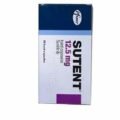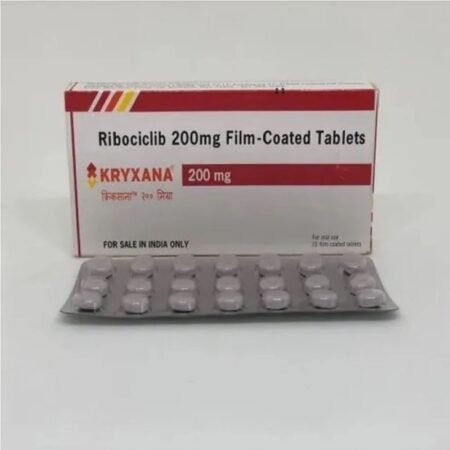Description
SUTENT (Sunitinib 12.5mg,25mg,50mg) is used to treat adults with kidney cancer that has not spread (localized) and who are at high risk of RCC coming back again after having kidney surgery. †SUTENT is used to treat advanced kidney cancer (advanced renal cell carcinoma or RCC). ‡SUTENT is used to treat a rare cancer of the stomach, bowel, or esophagus called gastrointestinal stromal tumor (GIST) and when you have taken the medicine imatinib mesylate (Gleevec®) and it did not stop the cancer from growing or you cannot take imatinib mesylate (Gleevec®). Gleevec is a registered trademark of Novartis Pharmaceuticals Corporation. §SUTENT is used to treat a type of pancreatic cancer known as pancreatic neuroendocrine tumors (pNET) that has progressed and cannot be treated with surgery. It is not known if SUTENT is safe and effective in children. IMPORTANT SAFETY INFORMATION SUTENT can cause severe liver problems that can lead to death. Tell your healthcare provider right away if you develop any of the following signs and symptoms of liver problems during treatment with SUTENT: itching yellow eyes or skin dark urine pain or discomfort in the right upper stomach area Your healthcare provider should do blood tests to check your liver function before you start taking and during treatment with SUTENT. Your healthcare provider may tell you to temporarily or permanently stop taking SUTENT if you develop liver problems. SUTENT may cause serious side effects, including: Heart problems. Heart problems may include heart failure, heart attack and heart muscle problems (cardiomyopathy) that can lead to death. Tell your healthcare provider if you feel very tired, are short of breath, or have swollen feet and ankles. Your healthcare provider may stop your treatment with SUTENT if you have signs and symptoms of heart failure. Abnormal heart rhythm changes. Changes in the electrical activity of your heart called QT prolongation can cause irregular heartbeats that can be life threatening. Your healthcare provider may do electrocardiograms and blood tests (electrolytes) to watch for these problems during your treatment with SUTENT. Tell your healthcare provider immediately if: you feel faint or lightheaded, or you pass out you feel dizzy you feel your heart beat is irregular or fast High blood pressure. High blood pressure is common with SUTENT and may sometimes be severe. Follow your healthcare provider’s instructions about having your blood pressure checked regularly. Call your healthcare provider if your blood pressure is high or if you have any of the following signs or symptoms of high blood pressure: severe headache lightheadedness dizziness change in vision Your healthcare provider may prescribe medicine for you to treat high blood pressure, if needed. Your healthcare provider may temporarily stop your treatment with SUTENT until your high blood pressure is controlled.
| Strength | 12.5 mg |
| Pack Size | Not specified |
| Brand | Not specified |
| Packaging Type | Box |
| Composition | Not specified |
| Form | Not specified |
| Shelf Life | Not specified |
| Usages | Not specified |
| Country of Origin | Made in India |










